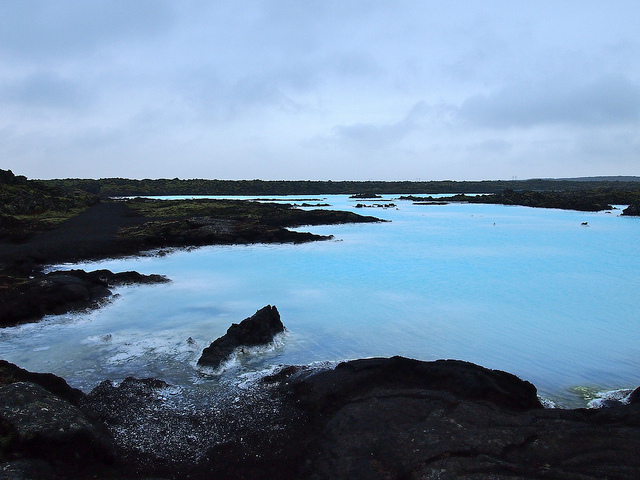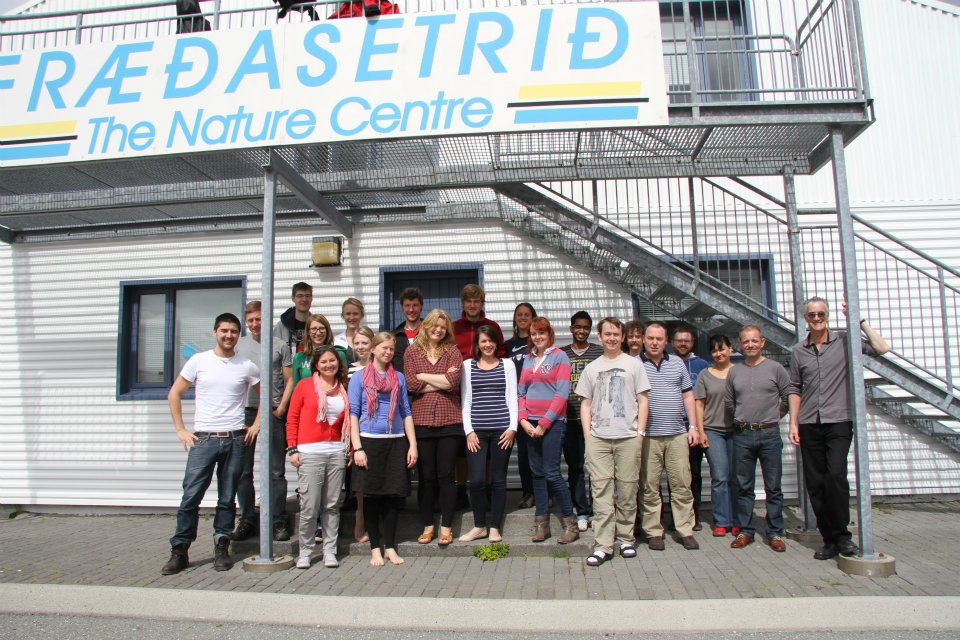Marine ecosystems are under pressure from anthropogenic drivers such as climate change, pollution, and exploitation. Among these, climate has an uncontested influence on the marine environment, as it affects individual organisms during all stages, with consequences for populations, communities, and the functioning of marine systems.
In addition, concurrent pressure from fisheries exploitation is known to result in population declines and modify ecosystem structure. Accumulating evidence indicates that fishing has influenced the phenotypic and genetic structure of harvested stocks, and that in turn this is likely to have affected their productivity, resilience to, and recovery potential from future natural and human-induced climate change. It is therefore essential to have a thorough understanding of the influence of human activities and ocean climate on the biology and ecology of fisheries to ensure long term sustainable operation.
This subject represented the central theme of the course, which focussed on the ecology of exploited marine fish resources, with particular emphasis on the combined impact that both climate change and human impacts have on the physiology, biology and behaviour of fish populations. I attended the course in June this year, held by the University of Iceland in Reykjavik http://www.marine.is/fisheco.html.
We started off, in the beautiful harbor of Sandgerði where we received a warm welcome from our instructors, Guðrún Marteinsdóttir, Bruce McAdam and Pamela Woods. They gave us a great introduction to the course and got us prepared for fieldwork.
After being spilt into two groups, that afternoon we set out on the Danish Seine boat headed for the local fishing grounds.
Once donned in the appropriate waterproof clothing, we started collecting data straight away. The species name, length, weight, liver weight as well as sex and weight of the gonads/ovaries was all recorded from the mornings catch. We received instruction from Pamela and Bruce on how to extract fish otoliths, and were able to perform their removal first hand on a variety of fish including flatfish, cod and wolfish which was a great and unique experience.
The two days that followed were spent in the lab learning invaluable otolith ageing techniques. We were lucky enough to be under the instruction of leading fisheries expert, Dr Steven Campana from the Bedford Institute of Oceanography, Canada. We learned how to age fish otoliths, using techniques such as the “crack and burn” method. There are many different ageing methods and ways to ensure ageing accuracy and determination. These techniques are invaluable to fisheries management, providing important information on fisheries, fish ecology and the environment.
Preceding the stimulating otolith lab we headed to Reykjavik to move into our new home for the remainder of the course nicknamed “The White Mansion”, a beautiful house in the heart of Reykjavik. En route we were given a whistle stop tour of some of Iceland’s gems, such as Garðskagaviti, Gadhur lighthouse, Gunnuhver hot spring and the famous blue lagoon geothermal pool.

The following week of the course consisted of morning lectures followed by pre-defined stimulating paper discussions in the afternoon, each of us taking it in turn to present a paper and lead the discussion.
The lecture series covered extensive topics within the fields of climate variability and its effects on fish as well as the management of marine resources in the face of a changing climate. We received lectures on subjects such as fish movements and migrations, genetics of adaptation, the effects on fish reproduction, recruitment processes and fisheries management to name but a few. We were fortunate to receive these lectures by experts in the field, Dr Halldór Björnsson (Icelandic Meteorological Office); Dr Bruce McAdam (University of Iceland); Prof Guðrún Marteinsdóttir (University of Iceland); Dr Pamela Woods (University of Iceland); Dr Steven Campana (Bedford Institute of Oceanography); Dr Edward Trippel (Fisheries and Oceans Canada) and Dr Fred Allendorf (University of Montana).
In amongst the lectures we worked on our group assignment, we spilt ourselves into groups of two or three to design and carry out a small research project. The results of which were presented in the form of scientific poster on the last day of the course. All the groups worked hard, designing and implementing interesting research questions and as a result produced very high standards of posters.
The fisheries ecology course was a great experience. It was short but intense, and very interactive promoting stimulating discussions. The course provided a great opportunity to meet researchers and students from all over the world as well as experience beautiful Iceland.


